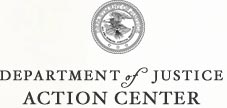


Thank you, Jim, for that kind introduction, and for your commitment to protecting the rights, safety, and best interests of American consumers, innovators, and entrepreneurs. It’s a pleasure to be here at Towson University, and a privilege to join with so many dedicated leaders – including United States Attorneys Rod Rosenstein, Neil MacBride, and Ron Machen – as we announce the recipients of the Fiscal Year 2012 Intellectual Property Theft Enforcement Program grant awards.
These new investments represent an important step forward in our fight to prevent and combat IP crimes; and they will enable some of our key state and local partners to build on the record of success that Jim just discussed. As part of these grants, we are awarding more than $2.4 million to 13 law enforcement agencies across the country – including the County of Baltimore, which will be receiving nearly $124,000 to enhance its Police Department’s IP-enforcement training and investigative efforts. Award grants also will be provided to:
· City of Austin, Texas
· City of Central Point, Oregon
· City of Orlando, Florida
· City of San Antonio, Texas
· Cook County Sherriff’s Office, Illinois
· County of Riverside District Attorney’s Office, California
· County of Sacramento, California
· California Department of Justice
· Los Angeles City Attorney’s Office
· New York County District Attorney’s Office
· St. Louis Metropolitan Police Department
· Virginia State Police
Although these awards will be utilized in a variety of ways, they will help to achieve our common goals: to advance prosecutions – as well as prevention and education activities – related to IP theft . These resources will be used to fund new police department positions specifically tasked with investigating IP crime; to create Spanish-speaking radio messages about the dangers of IP theft; to purchase cutting-edge surveillance, evidence collection, and storage equipment; to develop and implement more law enforcement and prosecutor training programs; and to improve coordination, information sharing, and data collection.
Without question, these new investments are coming at a critical time. As our country continues to recover from once-in-a-generation economic challenges, the need to defend IP rights – and to protect Americans from IP theft – has never been more urgent. We have seen – far too often – that IP crimes are not victimless. Not only can they devastate individual lives and legitimate businesses, they also undermine our nation’s financial stability, can jeopardize the health of our citizens, and even threaten our national security.
But make no mistake, today’s Justice Department is fighting back. And thanks to Jim’s leadership of the IP Task Force; the engagement of partners from across law enforcement and the public and private sectors; and the outstanding work of the Department’s U.S. Attorneys’ Offices, Criminal and Civil Divisions, and Office of Justice Programs – our efforts to prevent and combat IP crimes have never been stronger.
Over the last two years, in addition to the work of the Task Force, the Department has played a leading role in the implementation of the first-ever government-wide Joint Strategic Plan on Intellectual Property Enforcement, which was released in June of 2010 and is being overseen by the Office of the U.S. IP Enforcement Coordinator. We’ve also taken steps to ensure that the Department has the ability – and expertise – necessary to take our IP theft prevention efforts to a new level.
I’m proud to report that we now have 40 prosecutors and four computer forensics experts serving in the Computer Crime and Intellectual Property Section; 25 Computer Hacking and Intellectual Property – or, “CHIP” units – in our U.S. Attorney’s offices; m ore than 260 specially-trained CHIP prosecutors ; m ore than 50 FBI IP Special Agents; a robust international IP program; and strong partnerships with a broad range of IP rights holders.
These capacity-building efforts are paying dividends. In this year alone, we have prosecuted a number of significant IP cases. For example, in January – in one of the largest criminal copyright cases in U.S. history – the Department indicted two corporations and seven individuals with operating an international organized criminal enterprise responsible for massive worldwide online piracy of numerous types of copyrighted works, through Megaupload.com and other related sites.
In March, in one of the largest counterfeit goods cases in U.S. history, federal law enforcement agencies disrupted massive conspiracies to import more than $300 million in counterfeit goods from China, and illegal drugs from Taiwan, to the United States. And we’ve continued to work with ICE-HSI and the National Intellectual Property Rights Coordination Center on a number of matters, including Operation In Our Sites – which has facilitated the seizure of dozens of domain names associated with businesses engaged in online piracy and counterfeiting.
We also have enhanced our investigations and prosecutions of corporate and state-sponsored economic espionage. And, because IP crime is global in nature, I’ve prioritized increasing our international engagement. In fact, to date, Department officials have trained, educated, and met with thousands of foreign judges, prosecutors, investigators, and policymakers from more than 100 countries on IP protection. I personally have traveled to China, Hong Kong, Malaysia, Brazil, Hungary, and Germany to meet with my counterparts – as well as other government and industry leaders – to emphasize the importance of combating IP crime on a global scale, and with a global strategy.
But, as much as we’ve accomplished in recent years, we’ve also learned that the Justice Department can’t win this fight – and keep pace with today’s IP criminals – alone. We need your help. We need the assistance of industry leaders, law enforcement officials, and IP crime victims. And we will continue to rely on the leadership and engagement of each one of this year’s grant awardees.
Only by working together will we be able to anticipate, understand, and overcome the new methods and technologies being employed by those who seek to profit from the innovations of others. That’s why, in the fight against IP crime, the Justice Department is – and will remain – committed to bringing our full enforcement resources to bear, and to increasing collaboration with our state, local, international, industry, and community partners.
Together, I know we can build on the momentum that’s been established. And I look forward to all that each of you – and, especially, this year’s award recipients – will help to accomplish in the days ahead.
And, now, I’d like to turn things over to a key leader in this work, who is helping to make historic progress here in Maryland – United States Attorney Rod Rosenstein.




